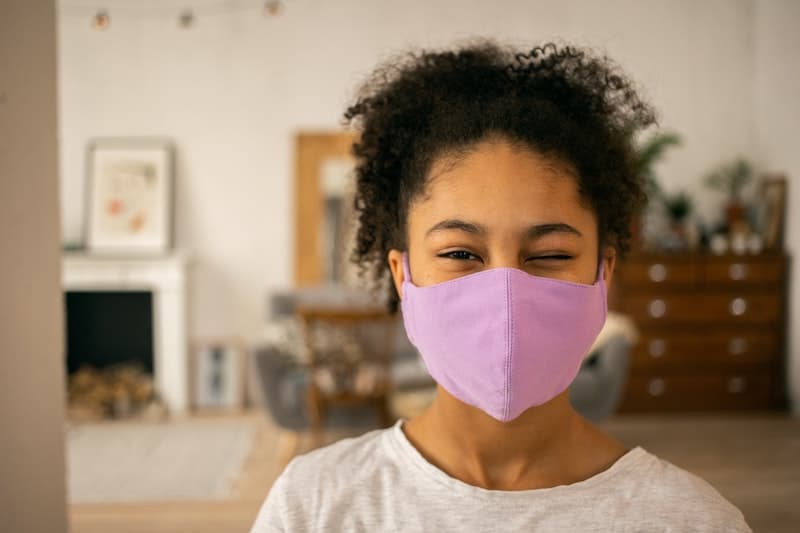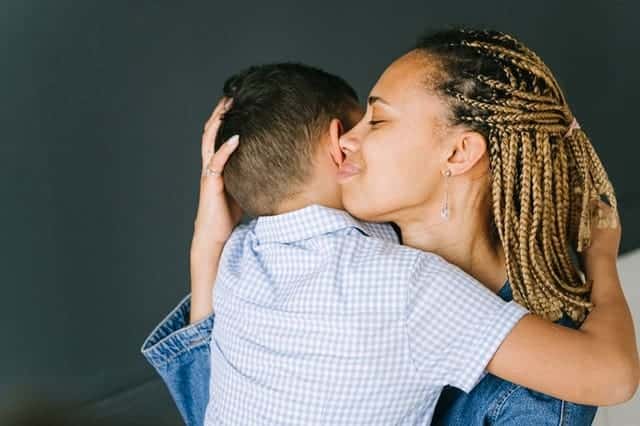The pandemic has caused major disruptions in routines and social activities for children. These disruptions have led to social isolation and a crisis that is reaching into 2022.
Many children have missed their sports games, music lessons, birthday parties, and other activities. At the same time, they’ve been kept from friends and family, making it more difficult for them to enjoy much needed social support. All this has taken a toll on children’s social and emotional health. Additionally, it has affected their academic performance and led to a stark situation overall.
It is imperative that adults understand the pandemic effects on children. The more clearly we see the big picture and its overall effects on kids, the more we can help them cope with the changes and difficulties they have faced. Our ability to relate to their current trauma can improve the accuracy and effectiveness with which we embolden children with resilience and the ability to navigate the unknown.
In this article, we will explain pandemic effects on children and provide strategies to help you support your kids at home.
What are the Pandemic Effects on Children
Childhood Development

The pandemic effects on children are broad and far-reaching. Children have been one of the most adversely impacted demographics internationally, as they have experienced disruptions, fear, and social isolation during a most vulnerable time in their lives.
Some skills that can only be developed in the company of other children have been disrupted. For younger children especially, the inability to access daycare and play dates has been problematic. Being separated from their peers and teachers has slowed their social and emotional development. For older children, the isolation has made it harder to build vital relationships (Children’s Hospitals).
According to Children’s Hospitals, the main list of childhood development skills being interrupted by the pandemic include:
- Self and social awareness
- Learning to have positive relationships
- Self regulation
- Good decision making
- Problem solving
Also at risk are learning skills, which have been halted abruptly with the need for distance learning. COVID has affected every child; it’s resulted in a collective traumatic event.
Academics

Children have been unable to regularly attend school in person. Consequently, they have fallen behind academically.
During the first year of the pandemic (2020), children’s grades and ability to learn new information began to decline. Unfortunately, they have not yet caught up in 2022.
One study by the NWEA studied 8th graders. They found that 1out of 3 8th graders are testing at lower levels than normal in both math and reading (NY Times). Additionally, the students whose test scores are suffering most are Black, Hispanic, and living near or under the poverty level. According to Michael Petrilli of the Thomas B. Fordham Institute, “We haven’t seen this kind of academic crisis in living memory” (NY Times).
Behavior Problems at School
Although many people believe that children’s lives have gone back to normal since being allowed to go back to school on a limited basis, they have not.
Our “new normal” is rife with uncertainty, less social interaction, and a sense of loss. As a result, behavior problems in school have increased. Children have struggled in a variety of ways. Some have become more aggressive and started fights in both the classroom and online. Similarly, some children have taken up swearing while others are vandalizing their schools. Still others are running out of their classrooms as a result of built-up pressure and panic attacks, or have stopped participating in class altogether.
School used to be a haven for many students. Over the course of the pandemic, they have become microcosms of international chaos caused by the pandemic.
Furthermore, practices such as making children sit apart from their friends at lunchtime, social distancing at school, and fear of the virus are making the situation worse. According to the NY Times, the car rides to and from school have even become fear-laden since they have been recognized as an opportunity for the virus to infect children.
The trade off of protecting children from the virus at the expense of their academic and social development is wreaking havoc on our children’s emotional well-being.
Mental Health

Students’ mental health has suffered. Being isolated from their friends, activities, and routines has had a profound effect. In addition, as economic effects worsened, families are experiencing a greater degree of poverty. In turn, children are witnessing more family stress. The culmination of these adverse consequences of the pandemic has led to a large increase in anxiety and depression.
It was reported in one study in late 2020 that 22% of children showed increased signs of depression, anxiety, and stress (KFF). At the same time, children have had less access to mental health services so parents have had to bring their ailing children to emergency rooms in the midst of a mental health crisis.
As a result, the American Academy of Pediatrics declared a national state emergency for children’s mental health. This was based on the number of emergency room visits for mental health crises.
At the same time, suicide attempts have risen primarily in children aged 12 to 17 (KFF). In particular, the number of ER visits for suspected suicide rose by 51% for girls aged 12-17 since 2019 (NY Times). For younger children aged 5-11, there was a 22% increase in ER visits for mental health (Yale Medicine). It’s evident that children are suffering greatly from the pandemic.
In the midst of this chaos, there are ways to help re-establish order and safety for your children at home.
How to Support Children at Home

There is a wide variety of activities that can help support your child’s cognitive and behavioral development at home during the pandemic. Here are 5 activities you can complete in less than 10 minutes a day.
1. Teaching emotional intelligence by labeling emotions.
Help them label their feelings, and then empathize with why they feel that way. If they need help, offer words to help them articulate their feelings. Questions such as, “Do you think you feel frustrated or angry, or sad?” will help them label their feelings.
2. Encourage self care activities for mental health.
Teaching your children the tenets of self-care is an important way to combat anxiety and depression. Activities such as having a dance party at home, drawing or painting, or taking a hot bubble bath are all useful. There are many self-care activities you can incorporate into your daily routine at home depending on your family’s time limitations.
3. Teach your children how to adapt to change.
The pandemic has increased stress on children. As a result, teaching your kids how to adapt to change is an important tool. Keep routines at home as consistent as possible and discuss change before it happens, if you can. Acknowledge your children’s worries and fears, and allow them to feel their emotions (WISC). It can be helpful to write a list of to-do’s for each day with your child so they know what to expect.
4. Work on mindfulness with your children.
Mindfulness is very effective at lowering stress. It teaches children to accept and pay attention to what is occurring in the present moment. This, in turn, helps them face daily challenges. There are many apps that teach mindfulness practices. There are also age-appropriate activities provided on numerous child development websites.
5. Utilize positive parenting tips.
For as long as the pandemic lasts it is crucial to be supportive of children at home. We recommend parents utilize positive parenting tips. These help children cope, build emotional skills, and adapt during difficult times. Chief among these tips is nurturing your children and building connections with them so they know they can come to you with their questions, concerns, and burdens.
Soul Shoppe provides social emotional learning programs for schools. homes, and businesses. In addition, we teach a variety of self-care activities. Please reach out to us with questions.
You May Also Like:
Virtual Social Learning Activities
Effects of Social Isolation on Children
How To Teach Empathy To Kids and Teenagers
Sources: Children’s Hospitals, KFF, Positive Psychology, WISC, Yale Medicine


